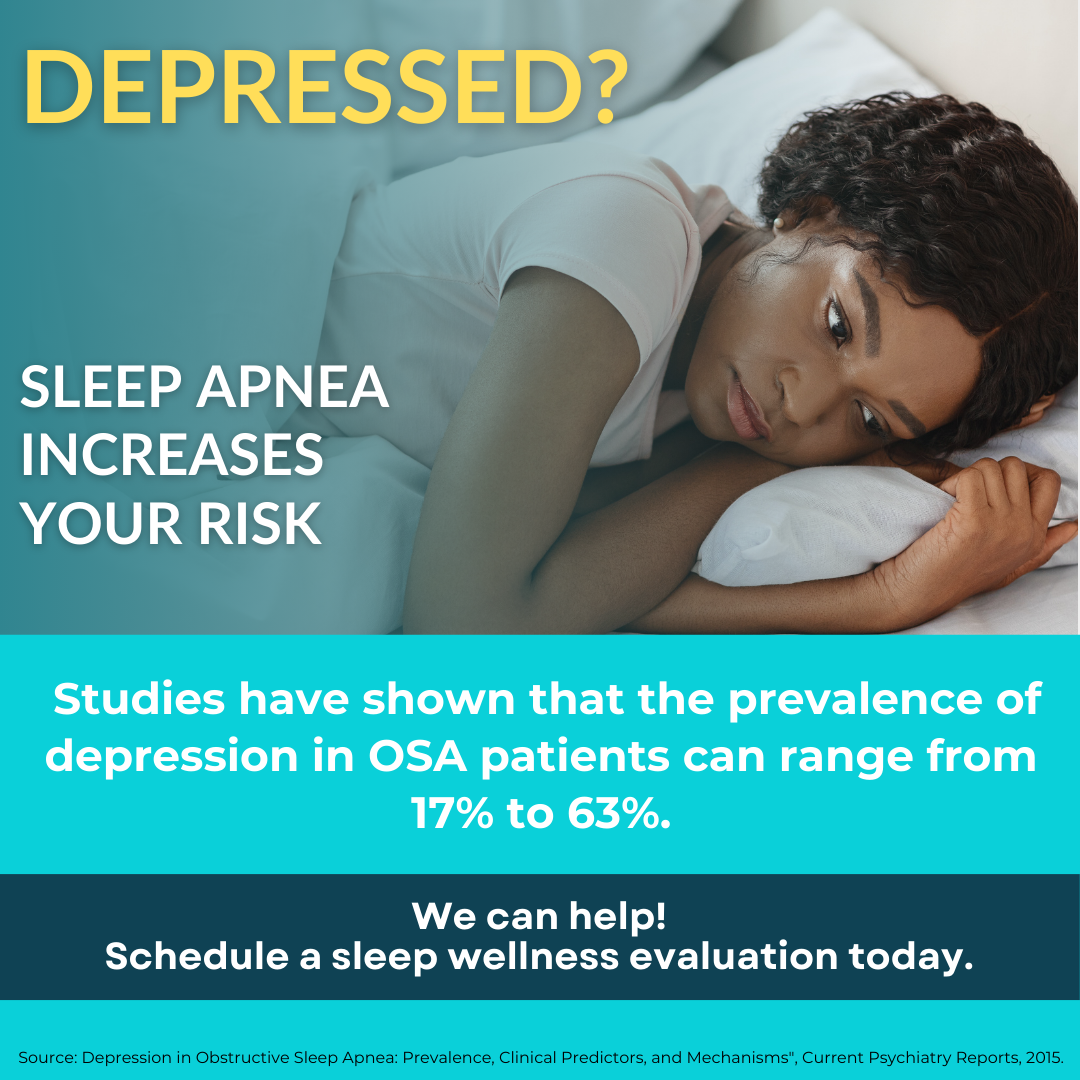It’s no secret that mental health and physical health are deeply intertwined. One of the more alarming connections is between Obstructive Sleep Apnea (OSA) and depression. Recent studies reveal a striking prevalence of depression among individuals with OSA, with estimates ranging from 17% to a staggering 63%. If you’re struggling with feelings of depression, it’s crucial to consider whether sleep apnea might be contributing to your symptoms. A sleep wellness evaluation could be the key to unlocking better mental and physical health.
How Sleep Apnea Affects Mental Health
Obstructive Sleep Apnea is characterized by repeated interruptions in breathing during sleep, leading to fragmented rest and decreased oxygen levels. These disruptions can significantly impact mental health, manifesting in symptoms of depression and other mood disorders.
Here’s how OSA may contribute to depression:
- Disrupted Sleep Patterns: Frequent awakenings and poor-quality sleep can lead to chronic fatigue, irritability, and feelings of hopelessness—all of which can contribute to depression.
- Reduced Oxygen Levels: Low oxygen levels during sleep can affect brain function, leading to cognitive impairments and mood changes.
- Inflammation and Stress: Sleep apnea triggers inflammatory responses and increases stress hormone levels, both of which are linked to depression.
- Impact on Daily Functioning: The daytime sleepiness and impaired cognitive function associated with OSA can affect work, social interactions, and overall quality of life, exacerbating feelings of depression.
Why the Link is Concerning
The strong correlation between OSA and depression is concerning because it underscores the need for a holistic approach to mental health. Depression can worsen sleep apnea, creating a vicious cycle where poor sleep contributes to worsening mental health, which in turn exacerbates sleep issues.
Addressing sleep apnea may not only improve sleep quality but also provide relief from depressive symptoms. Recognizing and treating OSA could be a crucial step in breaking this cycle and enhancing overall well-being.
The Importance of a Sleep Wellness Evaluation
If you suspect that sleep apnea might be affecting your mental health, a sleep wellness evaluation is an essential step towards finding relief and improving your quality of life.
Here’s why scheduling an evaluation is so important:
- Accurate Diagnosis: A comprehensive evaluation can help determine whether sleep apnea is contributing to your depression and identify the severity of your condition.
- Effective Treatment: With proper diagnosis, you can receive targeted treatment for OSA, which may include lifestyle changes, Continuous Positive Airway Pressure (CPAP) therapy, or other interventions.
- Improved Mental Health: Addressing sleep apnea can lead to better sleep quality, reduced symptoms of depression, and improved overall mental health.
What to Expect During Your Evaluation
A sleep wellness evaluation typically involves:
- Detailed Assessment: Your healthcare provider will review your symptoms, medical history, and any potential contributing factors to your depression.
- Sleep Study: You may undergo a sleep study to monitor your sleep patterns and identify any disruptions caused by sleep apnea.
- Personalized Plan: Based on the results, your provider will create a customized treatment plan designed to address both your sleep apnea and its impact on your mental health.
Take the First Step Towards Better Health
If you’re experiencing symptoms of depression and suspect sleep apnea might be a contributing factor, don’t wait to seek help. Scheduling a sleep wellness evaluation could be the key to unlocking better sleep, improved mental health, and a higher quality of life.
Act now—schedule your sleep wellness evaluation today and take the first step towards feeling better and living well. Early intervention can make a significant difference in managing both your sleep apnea and your mental health.


